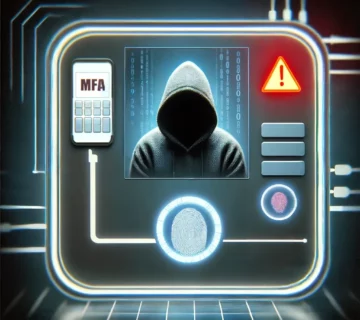
Hackers Using Advanced MFA-Bypassing Techniques to Gain Access to User Accounts
How cybercriminals are employing sophisticated techniques to bypass multi-factor authentication (MFA), a security measure designed to prevent unauthorized account access. These methods exploit vulnerabilities in the authentication process itself, such as manipulating session tokens and utilizing transparent phishing, rather than directly targeting passwords or one-time codes. The consequences of successful MFA bypass include minimal forensic evidence and difficulty in detection, potentially leading to data theft. To defend against these evolving threats, the text recommends strategies like continuous MFA validation, the use of cryptographically signed tokens, and the adoption of phishing-resistant authentication method. ... Read More